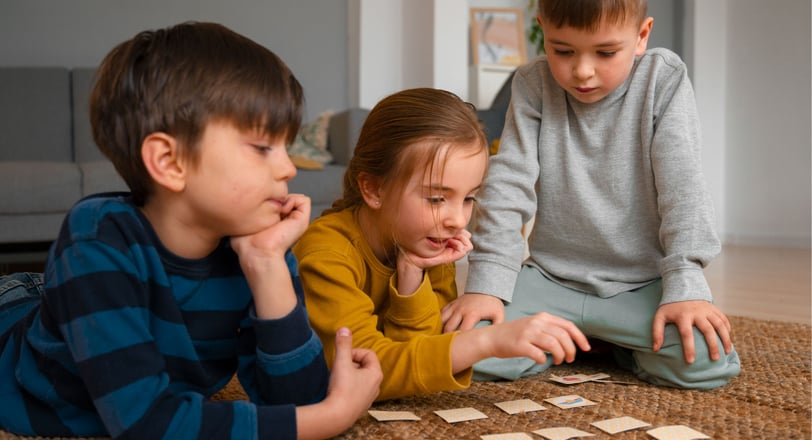How Memory Develops in Childhood: Key Stages and Practical Tips
Discover how memory develops step-by-step throughout childhood and explore fun ways to strengthen it through games, routines, and engaging activities.
COGNITIVE HEALTH & WELLNESS
10/22/20243 min read


Memory is an essential part of a child’s development, playing a critical role in learning, social interactions, and personal growth. From recognizing familiar faces in infancy to mastering school subjects later on, memory skills evolve gradually through specific stages. In this article, we’ll explore how memory develops during childhood and offer practical tips to support cognitive growth. We’ll also highlight fun and engaging activities, such as matching games, to help children practice and enhance their memory naturally.
Stages of Memory Development in Childhood
Infancy (0-2 years): Implicit Memory and Familiarity
At this stage, children rely heavily on implicit memory—the unconscious ability to remember familiar faces, sounds, or routines. Babies, for example, can recognize the faces of their parents and remember the melody of a lullaby they hear repeatedly. These early forms of memory lay the foundation for more complex learning as they grow.Toddler and Preschool Years (2-5 years): Developing Working Memory
In this phase, children begin to use working memory—the ability to hold and manipulate small pieces of information in their mind. This is when children can follow simple instructions like "Pick up your toy and put it on the table." Matching games, such as those found in MemoKids, are particularly helpful at this stage, encouraging children to recall patterns and enhance short-term memory through play.School Age (6-12 years): Strengthening Long-Term Memory
By this age, children are developing long-term memory, allowing them to store information over extended periods. This is essential for academic tasks, such as learning to read, spell, or solve math problems. Games that offer progressive challenges, like those found in memory apps, help consolidate learning and build the habit of retrieving information effectively.
How Parents and Educators Can Support Memory Development
Supporting memory development at home or in the classroom doesn’t require advanced techniques. Small, consistent activities have a big impact on children’s cognitive growth:
Routines and Repetition:
Establishing routines helps children form patterns in their memory, making it easier to remember tasks and schedules.Storytelling and Conversations:
Ask children to retell stories or events from their day. This practice strengthens narrative memory, helping them sequence events and remember key details.Play-Based Learning:
Incorporating games, such as memory matching games found in MemoKids, allows children to practice recalling information in a fun and engaging way, reinforcing both short-term and long-term memory.
The Role of Memory Games in Cognitive Development
Memory games are particularly effective because they engage multiple cognitive functions at once—attention, pattern recognition, and recall. Here are a few examples of memory-based activities:
Matching Card Games:
In these games, children must remember the position of matching pairs within a set of cards, training both attention and memory. MemoKids offers engaging matching card challenges with fun animal themes, designed to entertain while improving cognitive skills.Puzzle Games:
Completing puzzles requires children to recognize shapes and remember where each piece fits, enhancing their spatial memory and logical thinking.Story-Based Memory Games:
Some games focus on building memory through storytelling or sequences, helping children connect events and strengthen narrative memory. These activities are especially useful for school-age children, enhancing both comprehension and recall.
Practical Tips for Enhancing Memory at Different Ages
2-5 years: Use songs, rhymes, and visual matching games to build short-term memory.
6-8 years: Encourage children to keep a diary or draw their favorite activities to practice recall.
9-12 years: Introduce strategy games that require multi-step thinking, such as board games or logic puzzles.
Incorporating these activities into your daily routine helps children develop strong memory skills naturally, without the need for formal lessons.
Conclusion
Memory development in childhood happens in distinct stages, each one building on the previous one. By incorporating routines, storytelling, and memory-enhancing games into everyday life, parents and educators can support children’s growth. Games like MemoKids offer a playful way to reinforce these skills, blending fun with learning. With the right activities and consistent encouragement, children can develop the memory skills they need for future success.


